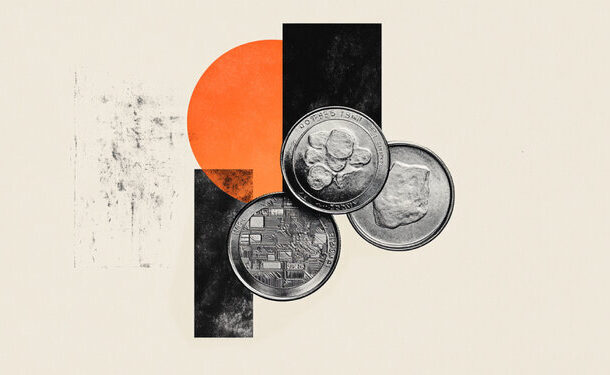
- USD/CHF drifts lower to near 1.3690 in Friday’s Asian session.
- Escalating tensions in the Middle East support the Swiss Franc.
- The SNB cuts interest rates to zero at its June meeting on Thursday.
The USD/CHF pair loses momentum to around 1.3690, snapping the three-day winning streak during the Asian trading hours on Friday. Fears of US involvement in Middle East conflict spark demand for the Swiss Franc (CHF), a safe-haven currency. The US Philly Fed Manufacturing Index will be published later on Friday.
The conflict between Israel and Iran has entered its seventh day. The White House said US President Donald Trump will make a decision within the next two weeks about whether to join Israel in the war. Uncertainties about a raging war in the Middle East and the fear that direct US involvement would widen the conflict boost the safe-haven flows, supporting the Swiss Franc and creating a headwind for the pair.
On Thursday, the Swiss National Bank (SNB) decided to cut its interest rate by 25 basis points from 0.25% to zero at its June meeting and did not rule out returning borrowing costs to negative territory in the future. The CHF has strengthened against the US dollar after the rate decision.
“Unless the situation changes drastically between now and September… today’s decision paves the way for a further rate cut in September and a return to negative interest rates,” said Charlotte de Montpellier, an economist at ING Bank.
On the other hand, the hawkish tone from the US Federal Reserve (Fed) could underpin the Greenback. The US central bank left its key borrowing rate unchanged on Wednesday and retained projections for two quarter-point rate cuts this year. Fed Chair Jerome Powell signaled a cautious note about further easing ahead, saying that he expects “meaningful” inflation ahead as a result of Trump’s aggressive trade tariffs.
Swiss Franc FAQs
The Swiss Franc (CHF) is Switzerland’s official currency. It is among the top ten most traded currencies globally, reaching volumes that well exceed the size of the Swiss economy. Its value is determined by the broad market sentiment, the country’s economic health or action taken by the Swiss National Bank (SNB), among other factors. Between 2011 and 2015, the Swiss Franc was pegged to the Euro (EUR). The peg was abruptly removed, resulting in a more than 20% increase in the Franc’s value, causing a turmoil in markets. Even though the peg isn’t in force anymore, CHF fortunes tend to be highly correlated with the Euro ones due to the high dependency of the Swiss economy on the neighboring Eurozone.
The Swiss Franc (CHF) is considered a safe-haven asset, or a currency that investors tend to buy in times of market stress. This is due to the perceived status of Switzerland in the world: a stable economy, a strong export sector, big central bank reserves or a longstanding political stance towards neutrality in global conflicts make the country’s currency a good choice for investors fleeing from risks. Turbulent times are likely to strengthen CHF value against other currencies that are seen as more risky to invest in.
The Swiss National Bank (SNB) meets four times a year – once every quarter, less than other major central banks – to decide on monetary policy. The bank aims for an annual inflation rate of less than 2%. When inflation is above target or forecasted to be above target in the foreseeable future, the bank will attempt to tame price growth by raising its policy rate. Higher interest rates are generally positive for the Swiss Franc (CHF) as they lead to higher yields, making the country a more attractive place for investors. On the contrary, lower interest rates tend to weaken CHF.
Macroeconomic data releases in Switzerland are key to assessing the state of the economy and can impact the Swiss Franc’s (CHF) valuation. The Swiss economy is broadly stable, but any sudden change in economic growth, inflation, current account or the central bank’s currency reserves have the potential to trigger moves in CHF. Generally, high economic growth, low unemployment and high confidence are good for CHF. Conversely, if economic data points to weakening momentum, CHF is likely to depreciate.
As a small and open economy, Switzerland is heavily dependent on the health of the neighboring Eurozone economies. The broader European Union is Switzerland’s main economic partner and a key political ally, so macroeconomic and monetary policy stability in the Eurozone is essential for Switzerland and, thus, for the Swiss Franc (CHF). With such dependency, some models suggest that the correlation between the fortunes of the Euro (EUR) and the CHF is more than 90%, or close to perfect.
Information on these pages contains forward-looking statements that involve risks and uncertainties. Markets and instruments profiled on this page are for informational purposes only and should not in any way come across as a recommendation to buy or sell in these assets. You should do your own thorough research before making any investment decisions. FXStreet does not in any way guarantee that this information is free from mistakes, errors, or material misstatements. It also does not guarantee that this information is of a timely nature. Investing in Open Markets involves a great deal of risk, including the loss of all or a portion of your investment, as well as emotional distress. All risks, losses and costs associated with investing, including total loss of principal, are your responsibility. The views and opinions expressed in this article are those of the authors and do not necessarily reflect the official policy or position of FXStreet nor its advertisers. The author will not be held responsible for information that is found at the end of links posted on this page.
If not otherwise explicitly mentioned in the body of the article, at the time of writing, the author has no position in any stock mentioned in this article and no business relationship with any company mentioned. The author has not received compensation for writing this article, other than from FXStreet.
FXStreet and the author do not provide personalized recommendations. The author makes no representations as to the accuracy, completeness, or suitability of this information. FXStreet and the author will not be liable for any errors, omissions or any losses, injuries or damages arising from this information and its display or use. Errors and omissions excepted.
The author and FXStreet are not registered investment advisors and nothing in this article is intended to be investment advice.








